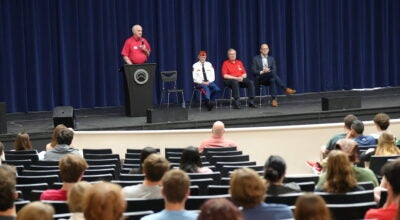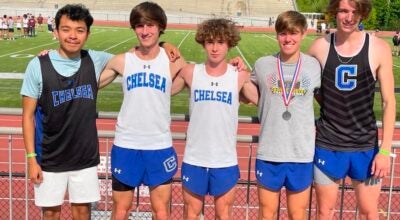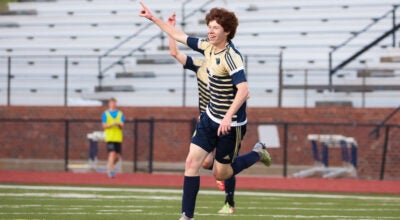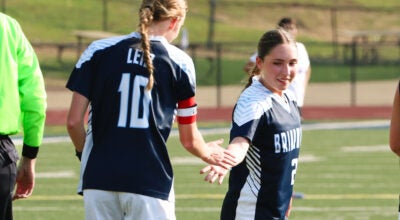Jefferson State hosts first Youth Peace Summit
Published 4:40 pm Monday, November 19, 2018
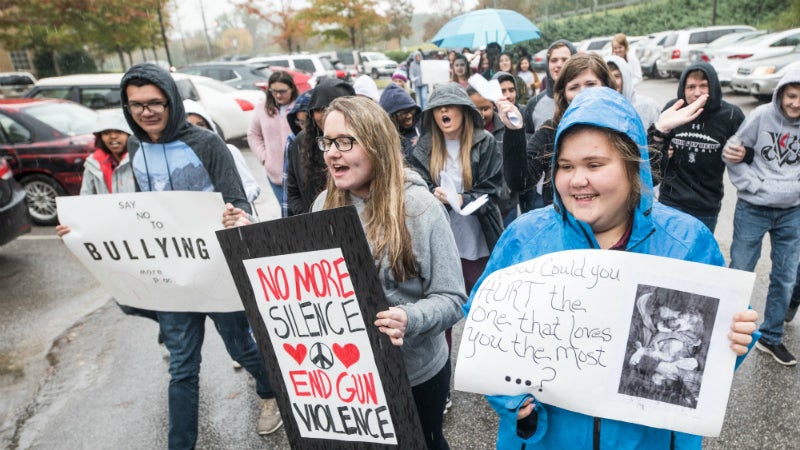
- Students participate in a mock protest during the Youth Peace Summit at Jefferson State Community College’s Shelby-Hoover Campus on Wednesday, Nov. 14. (REPORTER PHOTO/KEITH MCCOY)
HOOVER – In the cold and rain, students joined arms, carried signs and marched around the front of Jefferson State Community College’s Shelby-Hoover campus on Wednesday, Nov. 14.
Their cause? A commitment to nonviolent protest.
The mock protest was part of the first Birmingham Youth Peace Summit, hosted by the Jefferson State Student Government Association and the college’s chapter of Phi Theta Kappa International Honor Society.
The protest was cut short by the weather, and some students chose not to participate.
“Life doesn’t always go the way you plan it to,” said Gabrielle Daniels, Equal Justice Initiative Racial Justice Fellow. “You were there and you were present. That’s what is important.”
Elliot Spillers, former University of Alabama SGA president, offered final thoughts along with Daniels and asked attendees what were rights they would be willing to protest for. Answers included women’s rights, freedom of speech, gun control and workplace rights.
Students from Briarwood Christian School, Central Park Christian School and Thorsby High School attended the Summit.
The Summit, which was held at the Jeff State Health Sciences Building, began with a welcome from facilitators Liesl Harris and Ashton Ayers.
Traci Jones, Birmingham Civil Rights Institute gallery experience manager, then led a session titled, “What Does Nonviolence Look Like?” before a roundtable discussion on “Using Nonviolence to Change the World” with Spillers, Daniels, activist Maggie Webster and Civil Rights Movement Foot Soldier Ann Niles.
After lunch, breakout sessions were held and included “Using Art to Change the World,” “Making a Difference through Writing” and “Peacemaking in the Age of Social Media.”
Daniels said when protesting or even engaging in an “uncomfortable” conversation, it is important to have a desired outcome in mind.
“The value of conviction doesn’t start with someone else’s approval; it starts with yours,” Daniels said. “There were Nazis who killed people, that’s true, they murdered them—but there were more people who knew about it but didn’t do anything.”


